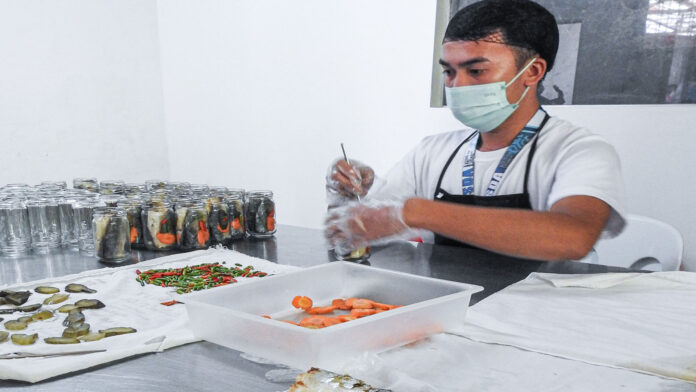A lawmaker on Wednesday revealed a “sluggish” uptake of interest-free and collateral-free loans by travel and tourism-related micro, small and medium enterprises (MSMEs) that were adversely affected by the coronavirus disease (Covid-19) pandemic.
Camarines Sur Rep. Luis Raymund Villafuerte made the statement after the Small Business Corp. (SBCorp) reported that these tourism MSMEs availed of just PHP329 million worth of financing assistance, or around 8.22 percent of the PHP4 billion set aside for the sector under the rescue package of the Bayanihan to Recover as One Act (Bayanihan 2).
Villafuerte argued that instead of funding this small business relief program, the more effective move was to build job-intensive tourism infrastructure nationwide to create jobs and quicken the recovery of “our once booming tourism sector.”
He said the proposal of PHP10-billion tourism infrastructure spending by the Tourism Infrastructure and Enterprise Zone Authority (TIEZA) would create the needed jobs for dislocated workers in this sector during the pandemic while at the same time improving facilities leading to tourist sites while the nation was still on lockdown.
The SBCorp disclosed that of the PHP7.93 billion released by the Department of Budget and Management (DBM) for zero-interest, no-collateral loans for all MSMEs devastated by the Covid-19 pandemic, PHP4 billion was allotted for travel and tourism-related loans under the “CARES for TRAVEL (Covid-19 Assistance to Restart Enterprises-Tourism Rehabilitation and Vitalization of Enterprises and Livelihood) component of Bayanihan 2’s rescue package for MSMEs in the trading, manufacturing, services, agriculture, tourism and other business sectors.
“The CARES loans were interest-free and collateral-free, but the steep service fee cancelled out the fact that the financial aid was offered at zero interest,” Villafuerte said. “This had apparently turned off or scared away many prospective borrowers who were wondering how they would be able to pay back such loans when their establishments were still closed because of the community lockdowns and travel restrictions.”
He described the bailout package for MSMEs of SBCorp as a “policy blooper” considering that most of the distressed enterprises were not expected to apply for loans when the country was still in lockdown, as well as other uncertainties about when quarantine protocols would be lifted, and when their businesses would be reopened.
“The then-proposed TIEZA infrastructure spending would have helped provide many jobs to dislocated industry workers and boost local economies, as infrastructure investments have a high multiplier effect of 3.5—meaning, it will generate PHP3.50 for the economy for every PHP1 investment—that would have generated badly needed economic activity in the tourism sites,” he said.
He noted that the rejected PHP10-billion infrastructure spending would have generated a projected PHP35-billion worth of economic activities in 2021 in areas with tourist spots, had TIEZA been given that amount to build various projects to improve facilities or make them more accessible to tourists.
Tourism Secretary Christina Frasco, earlier, said her priority projects at the Department of Tourism include the establishment of tourist service rest areas and information counters in at least 10 strategic areas across the country.
Frasco said these tourist service rest areas, which will have ramps and other facilities for persons with disabilities, will be implemented by TIEZA with the support of local government units. (PNA)
Photo credit: Facebook/DepartmentOfTourism


